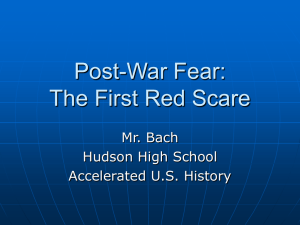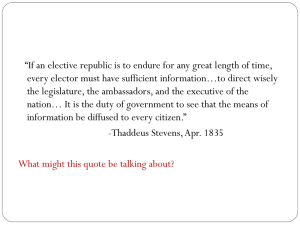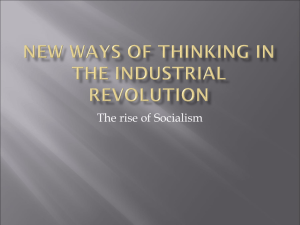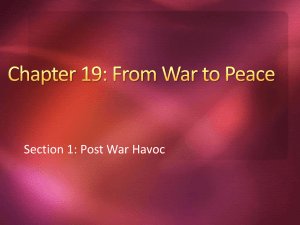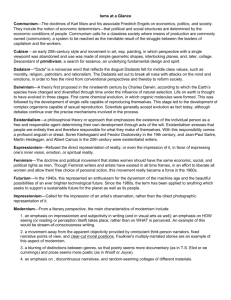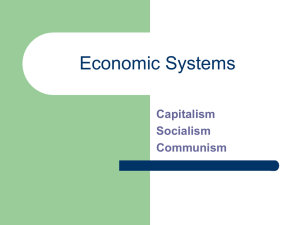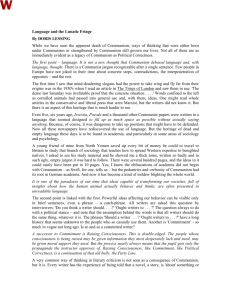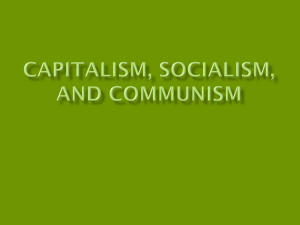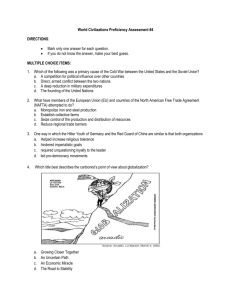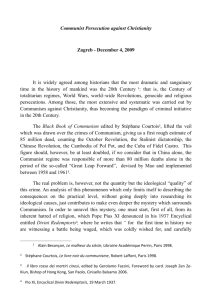A Leadership Perspective on Communism - Mid
advertisement
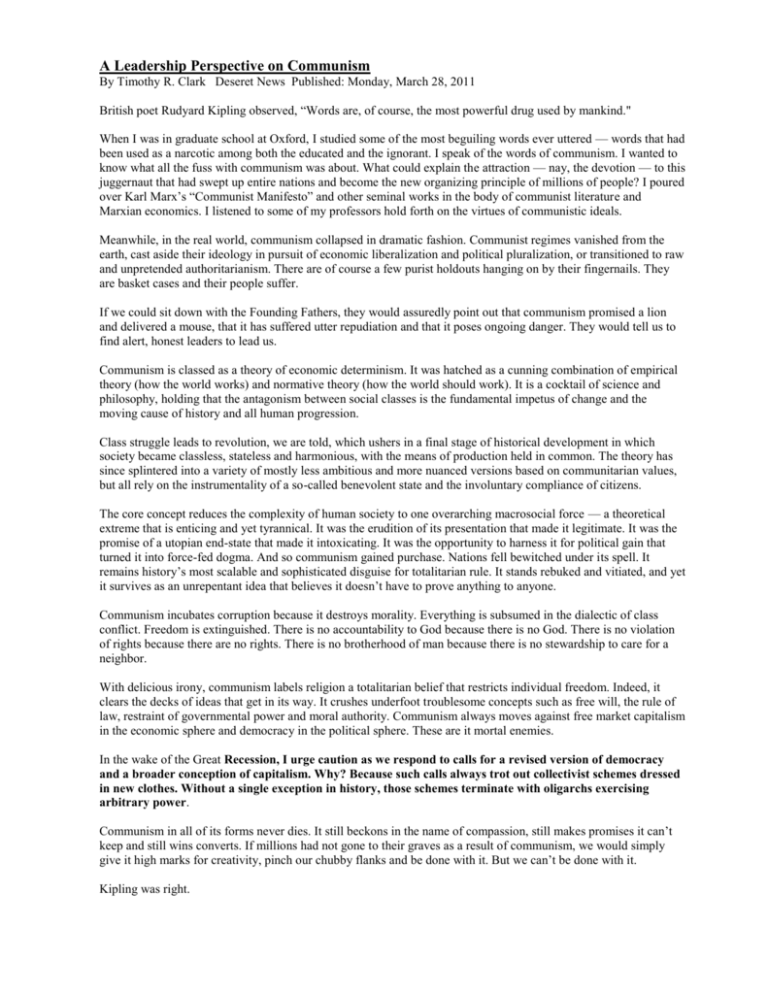
A Leadership Perspective on Communism By Timothy R. Clark Deseret News Published: Monday, March 28, 2011 British poet Rudyard Kipling observed, “Words are, of course, the most powerful drug used by mankind." When I was in graduate school at Oxford, I studied some of the most beguiling words ever uttered — words that had been used as a narcotic among both the educated and the ignorant. I speak of the words of communism. I wanted to know what all the fuss with communism was about. What could explain the attraction — nay, the devotion — to this juggernaut that had swept up entire nations and become the new organizing principle of millions of people? I poured over Karl Marx’s “Communist Manifesto” and other seminal works in the body of communist literature and Marxian economics. I listened to some of my professors hold forth on the virtues of communistic ideals. Meanwhile, in the real world, communism collapsed in dramatic fashion. Communist regimes vanished from the earth, cast aside their ideology in pursuit of economic liberalization and political pluralization, or transitioned to raw and unpretended authoritarianism. There are of course a few purist holdouts hanging on by their fingernails. They are basket cases and their people suffer. If we could sit down with the Founding Fathers, they would assuredly point out that communism promised a lion and delivered a mouse, that it has suffered utter repudiation and that it poses ongoing danger. They would tell us to find alert, honest leaders to lead us. Communism is classed as a theory of economic determinism. It was hatched as a cunning combination of empirical theory (how the world works) and normative theory (how the world should work). It is a cocktail of science and philosophy, holding that the antagonism between social classes is the fundamental impetus of change and the moving cause of history and all human progression. Class struggle leads to revolution, we are told, which ushers in a final stage of historical development in which society became classless, stateless and harmonious, with the means of production held in common. The theory has since splintered into a variety of mostly less ambitious and more nuanced versions based on communitarian values, but all rely on the instrumentality of a so-called benevolent state and the involuntary compliance of citizens. The core concept reduces the complexity of human society to one overarching macrosocial force — a theoretical extreme that is enticing and yet tyrannical. It was the erudition of its presentation that made it legitimate. It was the promise of a utopian end-state that made it intoxicating. It was the opportunity to harness it for political gain that turned it into force-fed dogma. And so communism gained purchase. Nations fell bewitched under its spell. It remains history’s most scalable and sophisticated disguise for totalitarian rule. It stands rebuked and vitiated, and yet it survives as an unrepentant idea that believes it doesn’t have to prove anything to anyone. Communism incubates corruption because it destroys morality. Everything is subsumed in the dialectic of class conflict. Freedom is extinguished. There is no accountability to God because there is no God. There is no violation of rights because there are no rights. There is no brotherhood of man because there is no stewardship to care for a neighbor. With delicious irony, communism labels religion a totalitarian belief that restricts individual freedom. Indeed, it clears the decks of ideas that get in its way. It crushes underfoot troublesome concepts such as free will, the rule of law, restraint of governmental power and moral authority. Communism always moves against free market capitalism in the economic sphere and democracy in the political sphere. These are it mortal enemies. In the wake of the Great Recession, I urge caution as we respond to calls for a revised version of democracy and a broader conception of capitalism. Why? Because such calls always trot out collectivist schemes dressed in new clothes. Without a single exception in history, those schemes terminate with oligarchs exercising arbitrary power. Communism in all of its forms never dies. It still beckons in the name of compassion, still makes promises it can’t keep and still wins converts. If millions had not gone to their graves as a result of communism, we would simply give it high marks for creativity, pinch our chubby flanks and be done with it. But we can’t be done with it. Kipling was right.

